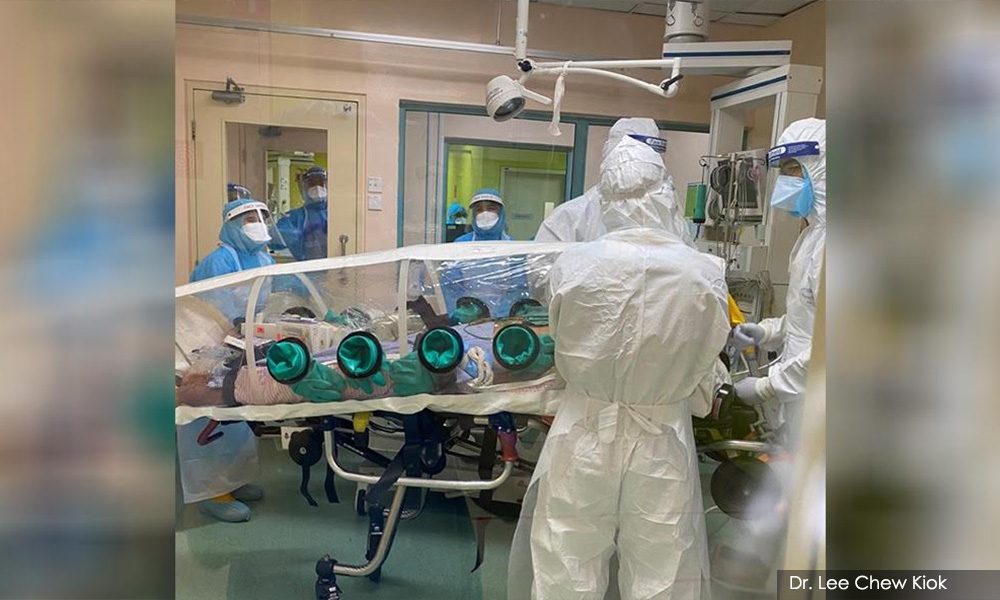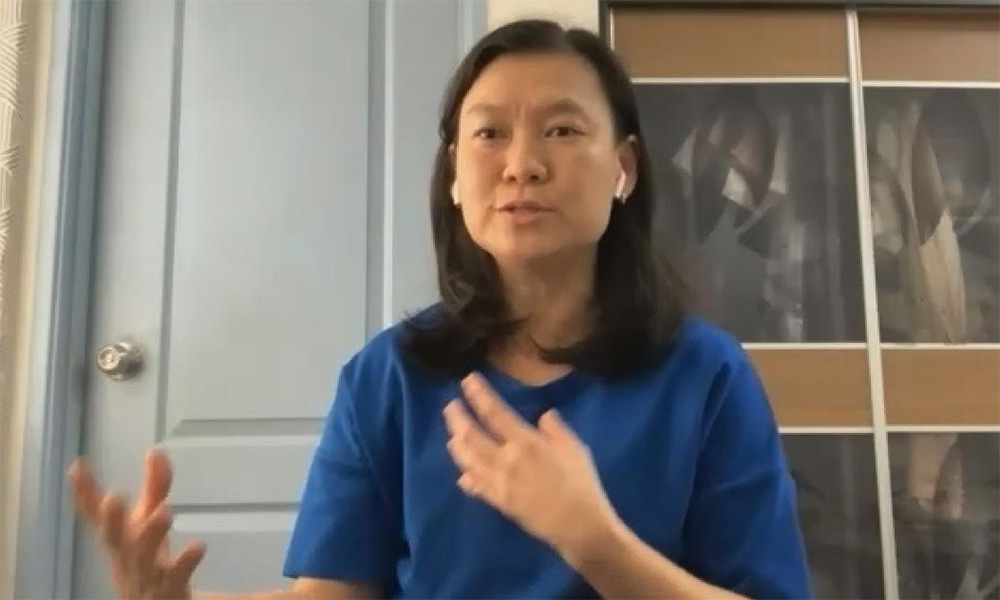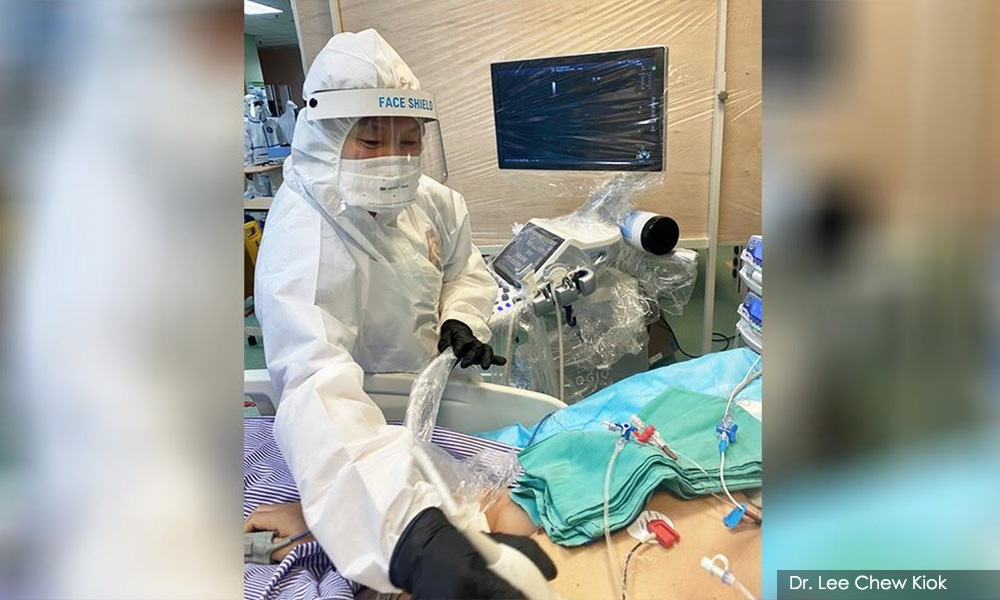COVID-19 | As one of the few key intensivist consultants at the Sungai Buloh Hospital, Dr Lee Chew Kiok was amongst the first medical frontliners to treat the earliest batch of Covid-19 patients in the country.
Her team was also responsible for preparing various protocols in combating the disease, which was then used by hospitals nationwide.
“I was the one available in Sungai Buloh Hospital when this pandemic hit, so I was involved.
"We were in charge of setting up the Covid-19 intensive care unit (ICU) ward, preparing the protocol for intubation, treatment and guidance for nurses. We also procured equipment for the ward.
"I was very fortunate to have a group of people who worked together with me, they consisted of doctors, nurses and support staff,” Lee told KiniTV in an interview.
Watch KiniTV’s part one interview with Lee here:
'Doctor, I really can’t breathe'
It was not too long after the hospital’s ICU ward was set up that it received its first patient, who later became critical and was under Lee’s care.
Choking up on emotions, Lee recounted how she had to comfort the patient when he panicked at one point.
“The patient told me 'I can’t breathe, doctor, I really can’t breathe. I have already stayed in this room for 10 days now, and I’m so scared. Can you please not leave me alone here? Can you please help me?’
"I felt so sad that they had to be in the room alone all the time. So, I told him 'I won’t leave you and I will help you',” she said.

The decision was then made to quickly intubate the patient.
“Intubation is a very dangerous process because it produces a lot of aerosols in the air. We also have to stay very close to the patient’s mouth to insert the tube.
"As he was our first ever Covid-19 patient that required intubation, I had to watch a video to learn how to wear a powered air-purifying respirator, or PAPR, to protect myself.
"The whole procedure (for this first intubation), from preparation to sedating the patient, and to having the tube inserted, took us nearly three hours,” she said.
Under the close care of the medical team, the first ICU patient eventually recovered.
On the other side of hospital care
While the Covid-19 situation was fairly under control for the first six months after it arrived on our shores, things quickly went downhill when the third wave hit in September.
Lee said the patient per medical staff ratio at her hospital increased extensively in December following the surge of patients.
While a medical consultant should ideally take care of only 15 to 20 Covid-19 patients at a time, Lee was looking after 45 at one point when her only other intensivist colleague took leave. She also had to work more than 10 hours a day.
“We were a bit burned out, and when we took leave, only one intensivist was left working.
"When my partner was off, I had to work from 8am and up until 6pm, I was still in the ICU seeing patients,” she added.
Then, Lee was slapped with an unexpected discovery.

On Dec 23, 2020, two days before Christmas, Lee tested positive for Covid-19 after experiencing fatigue and body ache for a couple of days.
Watch KiniTV's part 2 interview with Lee on her story of being a Covid-19 patient:
“I cried that night because I was so stressed out. I asked myself 'how could I get Covid-19?’
"I started to worry for myself and my family because I didn’t know whether I had spread the disease to them. My parents are old, my sister’s children are young,” she added.
Luckily, all of Lee’s close contacts were tested negative afterwards. She ended up spending 12 days in Sungai Buloh Hospital before her recovery. She has been on leave since then.
As the pressure on frontliners mount, Covid-19 hospitals nationwide are now actively recruiting volunteers. Although more manpower is joining the frontline, Lee said, based on her experience, the situation remains challenging.

“We need a very specialised team of ICU nurses. Nurses temporarily added to our hospital might not be familiar with Sungai Buloh Hospital.
"They might not know where the ICU is nor where machines are. They might not have used the same type of machine in their own hospitals. We need time to train them,” she added.
After being on the frontline for close to a year, Lee has only one plea to Malaysians: “If you seek treatment late and land yourself in the ICU (as a Covid-19 patient), your chances of dying is 50 percent.
"So please take care of yourself and take care of people surrounding you. Survive this pandemic by staying alive.” - Mkini



No comments:
Post a Comment
Note: Only a member of this blog may post a comment.